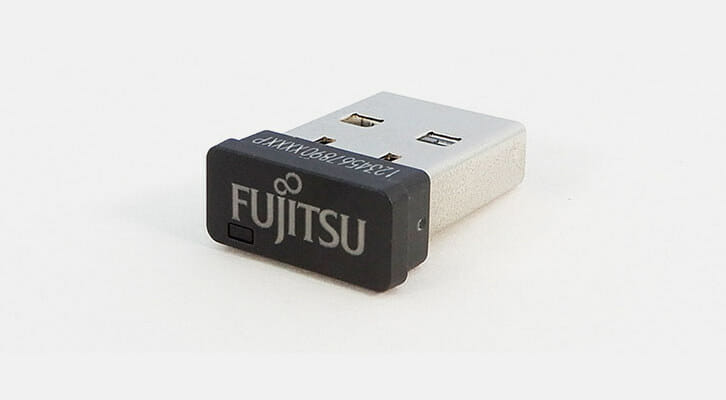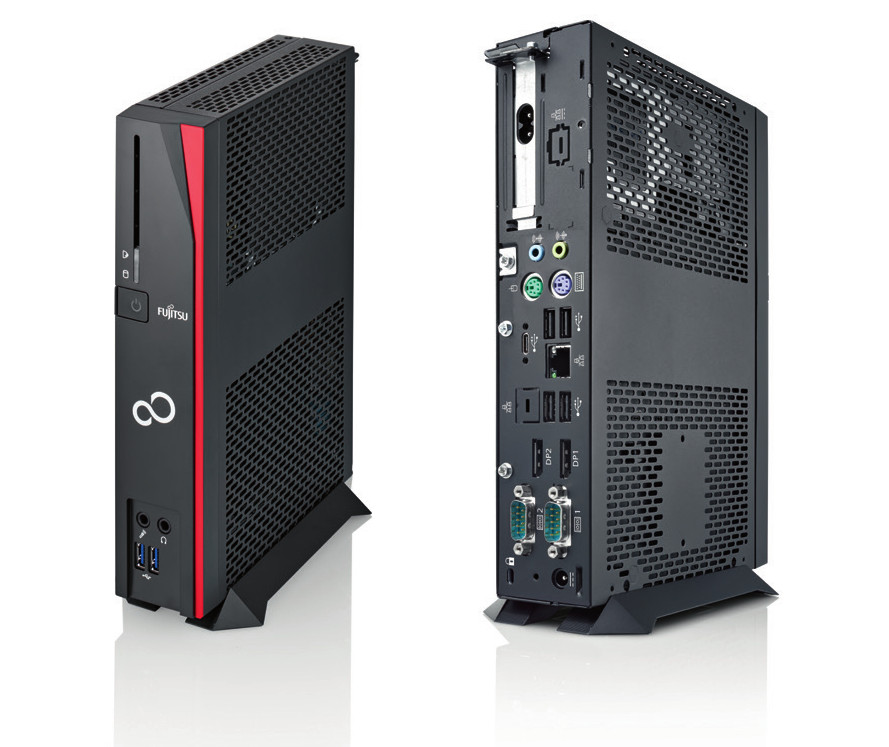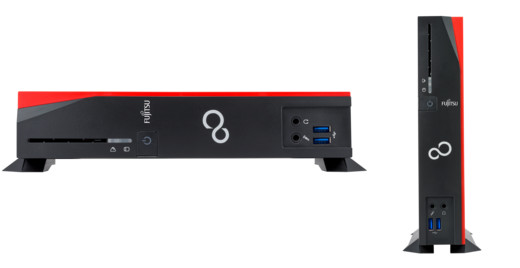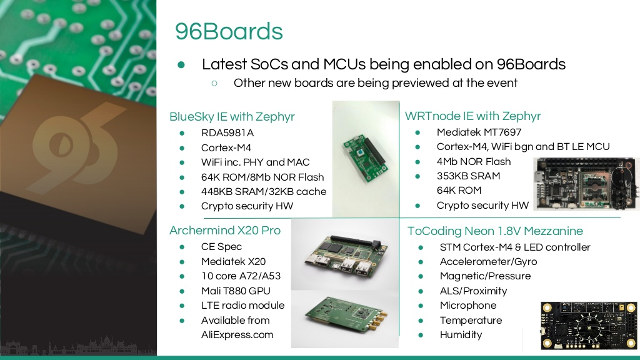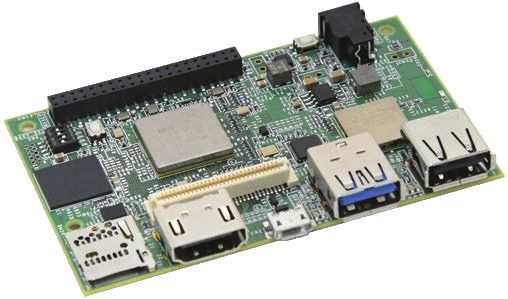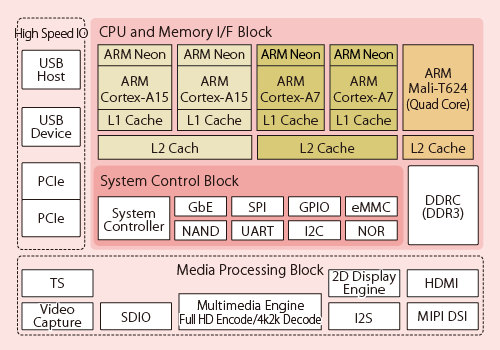I was first introduced to Wirepas Massive mesh networking a few days ago when I covered Solidrun Solidsense N8 IoT Compact Wirepas Massive gateway comprised of an NXP i.MX 8M Nano processor running Linux and a module based on Nordic Semi nRF52832 wireless MCU handling Wirepas Massive through its 2.4 GHz radio. It turns out there’s an easy way to add the new mesh networking technology to existing gateways: USB dongles. Fujitsu has launched the FWM8BLZ09x Wirepas Massive USB dongle family, based on the more recent nRF52833 SoC, with Anchor, Tag, and Sink models. Fujitsu FWM8BLZ09x specifications: USB Dongle Types Anchor – FWM8BLZ09P Tag – FWM8BLZ09T Sink – FWM8BLZ09S Wireless MCU – Nordic Semi nRF52833-CJAA Cortex-M4 microcontroller @ 64 MHz with 8 KB RAM, 512 KB Flash, 2.4 GHz radio Connectivity Wirepas Massive mesh networking Transmit power – +8dBm max. Carrier frequency – 2,400MHz to 2,483.5MHz Modulation – GFSK Symbol rate […]
Some FUJITSU FUTRO Thin Clients are Powered by Intel Gemini Lake Refresh SoC’s
Six new Intel Gemini Lake Refresh processors were just announced a couple of weeks ago, and some of the first systems to feature the processor are part of FUJTISU Thin Client FUTRO family. Three models based on the new processors have been introduced with namely FUTRO S9010, S7010, and S5010 thin clients, all passively-cooled, running either eLux RP or Windows 10 IoT Entreprise, and equipped with SO-DIMM slots, M.2 SSD storage, six USB ports, Gigabit Ethernet, and two DisplayPort outputs. Beside the processor, the three thin clients share mostly share the same specifications, especially S5010 and S7010, and S9010 does add a few features: SoC FUTRO S9010 – Intel Pentium Silver J5040 quad-core GLK Refresh processor @ 2.0 GHz (up to 3.2 GHz) with Intel UHD Graphics 605; 10W TDP FUTRO S7010 – Intel Celeron J4125 quad-core GLK Refresh processor @ 2.0 GHz (up to 2.7 GHz) with Intel UHD […]
FUJITSU FUTRO S540, S740, and S940 Thin Clients are Powered by Intel Gemini Lake Processors
Intel Gemini Lake processors should be officially launched in a few weeks with Pentium & Celeron SKUs. We already have a good idea about the new processors’ features, but AFAIK so far there’s been no official announcement of products based on the new processor family, since companies must still be under embargo. FanlessTech noticed three new FUJITSI FUTRO thin clients (S540, S740, and S940), and upon further research found they were based on mini-ITX and mini-STX motherboards equipped with Intel Celeron J4005/J4105 or Pentium J5005 Gemini Lake SoC. Let’s have a look at one of the models’ specifications (FUTRO S940): Mainboard – D3543-A mini-ITX board SoC – Intel Pentium Silver J5005 quad core processor @ up to 2.8 GHz with Intel Gen9 HD Graphics supporting DirectX 12, OpenGL 4.4, Open CL 1.2, OpenGL ES 3.1, Vulkan; 10W TDP System Memory – 2 GB – 16 GB via SO-DIMM slot (DDR4, 2400 […]
New 96Boards IoT Edition Boards Showcased at Linaro Connect 2017: BlueSky IE and WRTNode IE
Linaro Connect Budapest 2017 is taking place this week in Hungary, and during George Grey – Linaro CEO – keynote, he provided a status updates for the Linaro group, addressed some of Linaro’s criticisms from members and the community, and unveiled two upcoming boards compliant with 96Boards IoT edition both running Zephyr OS, and adding to BLE Carbon board announced last year. The first board is BlueSky IE board with the following key specifications: SoC – RDA Micro RDA5981A ARM Cortex-M4 Wireless MCU with 64KB ROM, and 32KB cache System Memory – 485KB SRAM. It’s unclear if that’s only the on-chip SRAM, and there’s also some external PSRAM added. Storage – 8Mb NOR flash 802.11 b / g / n HT20 / 40 mode Connectivity – 802.11 b/g/n WiFi with support for HT20 / 40 modes Crypto security hardware The second board is WRTnode IE: SoC – Mediatek MT7697 ARM […]
Fujitsu Launches F-Cue 96Boards Compliant Board Powered by SocioNext MB86S71 Processor
While 96Boards platforms may not be selling like Raspberry Pi boards, the form factor is quite popular with vendors, as there are now around 10 development board either directly supported by 96Boards, or at least compliant for the form factor. Fujitsu has also made their own 96Boards compliant F-Cue board powered by SocioNext MB86S71 quad core Cortex A15/A7 processor, as well as F-Cue extension board with Ethernet & PCIe interfaces. F-Cue board specifications: SoC – Socionext MB86S71 big.LITTLE quad core processor with 2x Cortex-A15 cores @ 1.2GHz, 2x Cortex-A7 cores @ 800MHz, and Mali-T624 GPU System Memory – 2GB LPDDR3 1333MHz Storage – 16GB eMMC 4.51 flash, micro SD 3.0 UHS-I slot Video & Audio Output – HDMI 1.4b Multimedia Capabilities – 1080p@30fps encode/decode, 4 stream H.264 decode; 32k x 32k JPEG codec Connectivity – 802.11 a/b/g/n/ac WiFi , Bluetooth 4.2 USB – 1x USB 3.0 host port, 1x USB […]
Fujitsu MB86S70 and MB86S73 ARM Cortex A15 & A7 Processors Run Linux for the Embedded Market
I like to check the ARM Linux kernel mailing list from time to time, as you may discover a few upcoming ARM processors. This week I found out Exynos 5433 and Exynos 7 are actually two different processors (thanks David!), and that AMD had submitted code for their 64-bit ARM Opteron A1100 SoC for servers. I also noticed a patchset for Fujitsu MB86S7X SoCs, and since I don’t often mention Japanese silicon vendors, probably because they now mainly deal mostly with the embedded market that gets very little press, and most information is in Japanese, I decide to have a look. There seems to be four SoC parts in MB86S7x family with MB86S70 quad core processor with two ARM Cortex A15 and two ARM Cortex A7 cores in big.LITTLE configuration, and MB86S73 with two ARM Cortex A7 cores only, as well as MB86S71/72 with 2x A15 and 2x A7, with […]
Linaro 13.08 Release With Linux Kernel 3.11 and Android 4.3
Linaro 13.08 has been released with Linux Kernel 3.11-rc6 (stating), Kernel 3.10.9 (LSK – beta), and Android 4.3. This month is the first release based on Android 4.3, which was only pushed to AOSP at the end of last month. I can also see work on new SoCs/hardware this month with Texas Instruments Keystone II ARM Cortex A15+DSP SoC and Fujitsu AA9 board (Which processor?, I could not find out). A lot of work also appears to have gone in OpenEmbedded, further optimizations have gone into NEON optimized AES encryption in OpenSSL, and more. It’s also the first time I can see a Ubuntu Raring engineering build image for HighBank (Calxeda Energycore). Here are the highlights of this release: Android Engineering Android stack was tuned to achieve 100% CTS pass result on Android 4.3 Analyzing the UEFI EDK II boot loader for Android completed, implementation of fastboot application and USB […]
NTT Docomo Showcases Smartphone Prototype with See-through Touch Panel
NTT Docomo and Fujitsus have jointly developed a smartphone prototype with a 2.4″ see-through OLED display (QVGA) that has touch sensors both on its front and back sides and NTT Docomo is currently exhibiting the device and showcasing the corresponding new innovative user interface at Wireless Japan 2012, until June 1, 2012, in Tokyo. The backside touch panel can be operated by using the forefinger and there are several ways to take advantage of a see-through display in the UI including: Operate the notification bar from the back side of the panel with a finger Hold an icon with a finger of one hand from the back side of the panel and stroke the front side of the panel with a forefinger of the other hand to move the home screen on which the icon is placed Play Rubik’s Cube by spinning the cube when the back side is not […]


